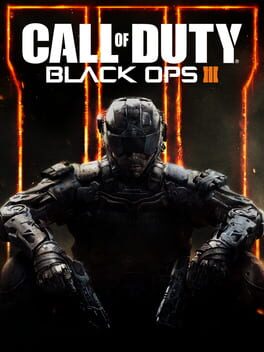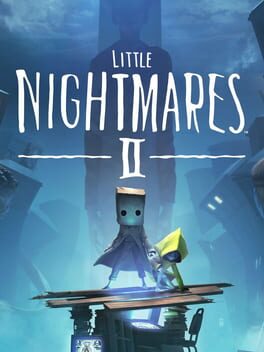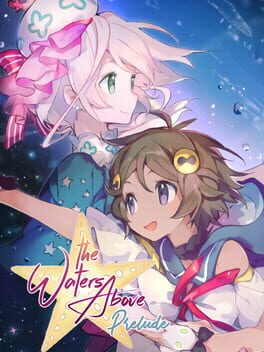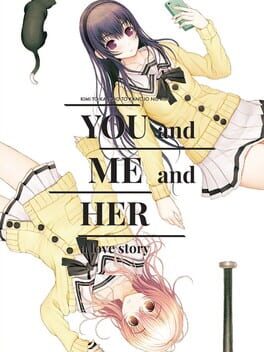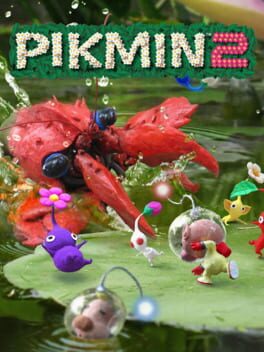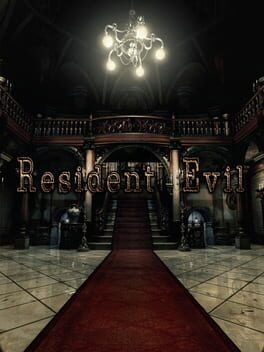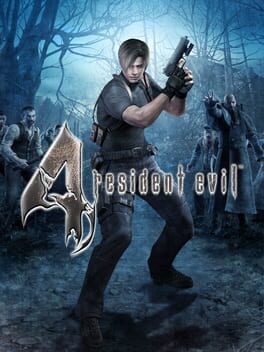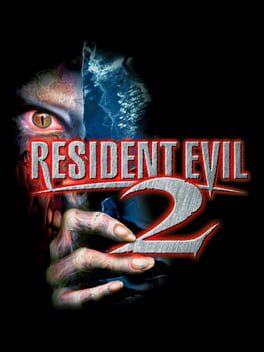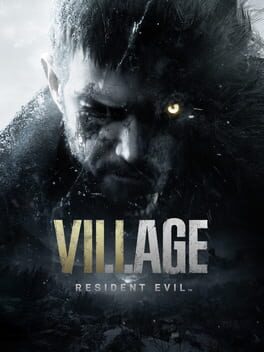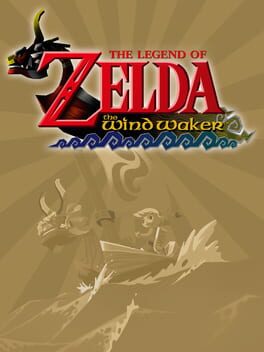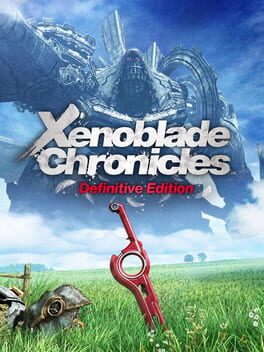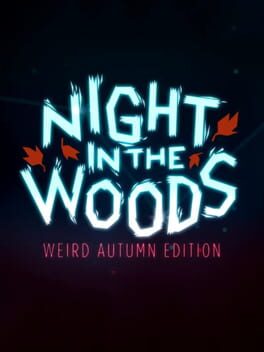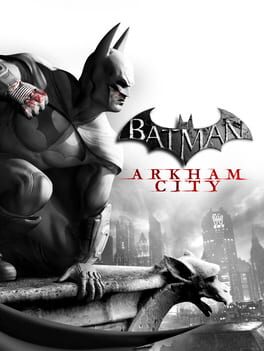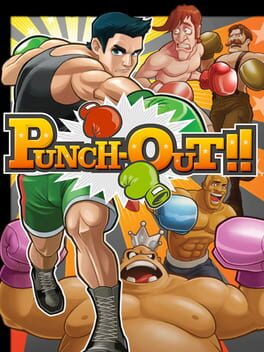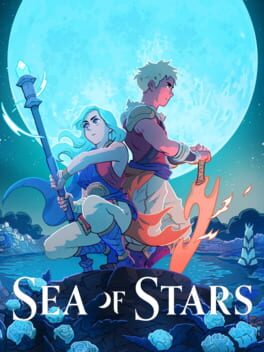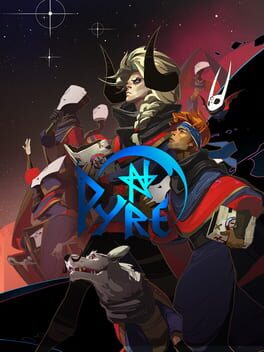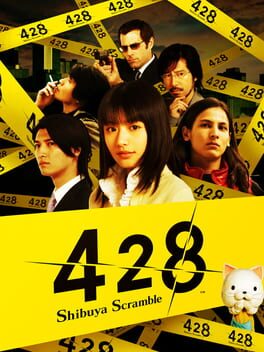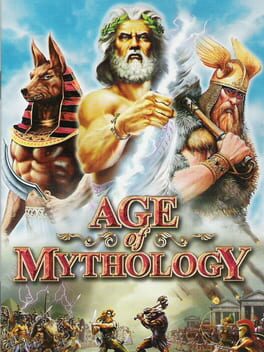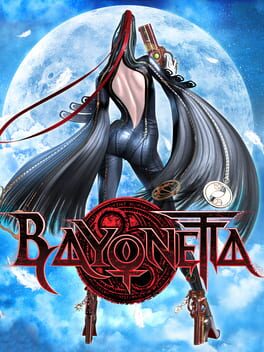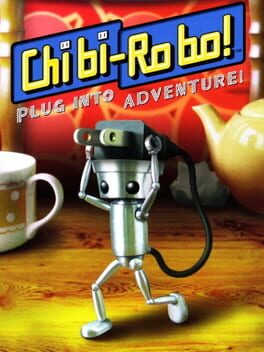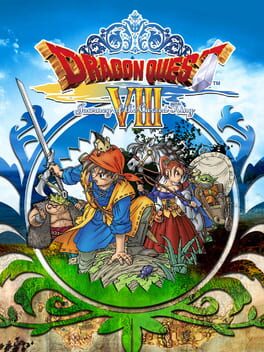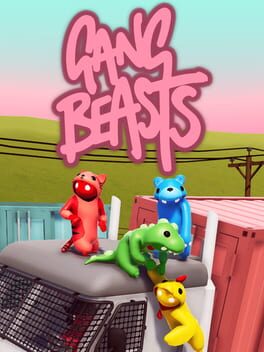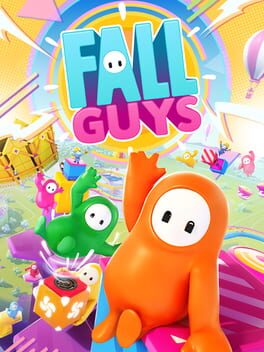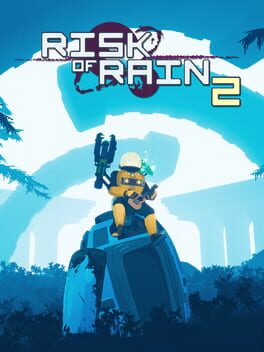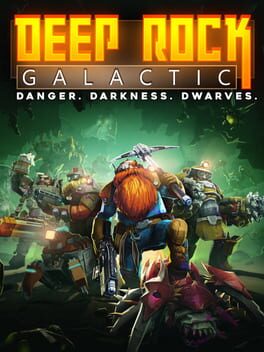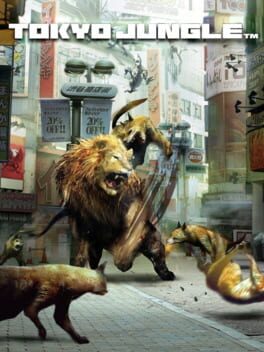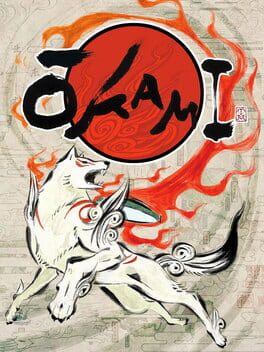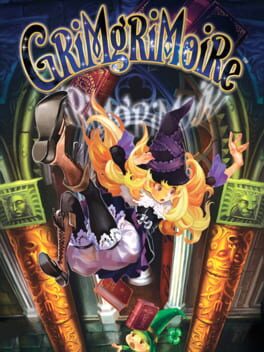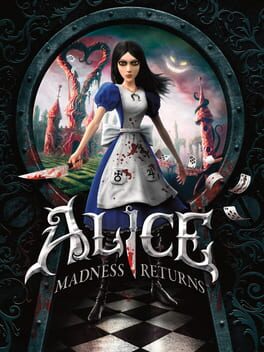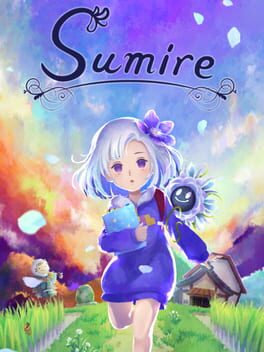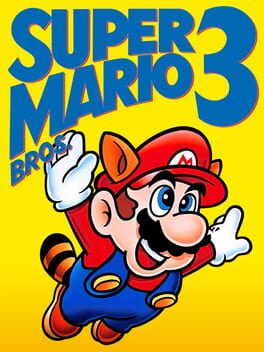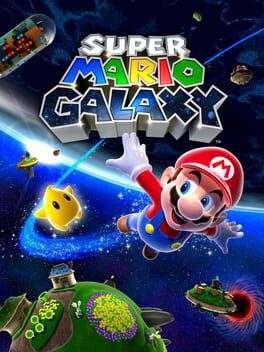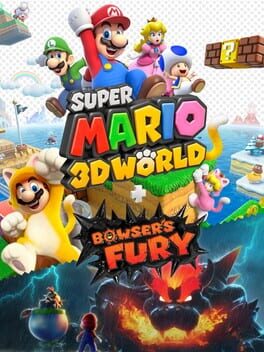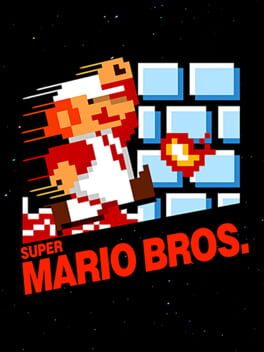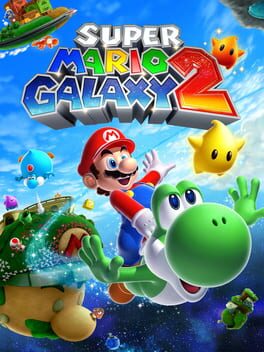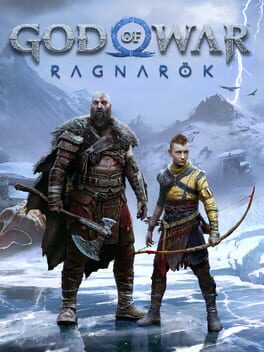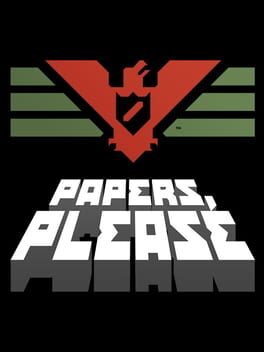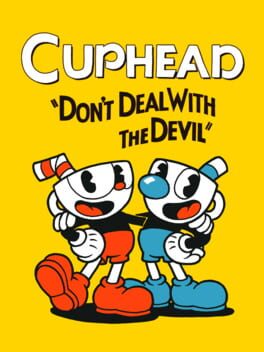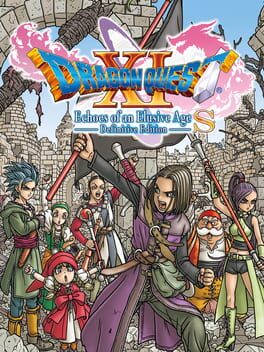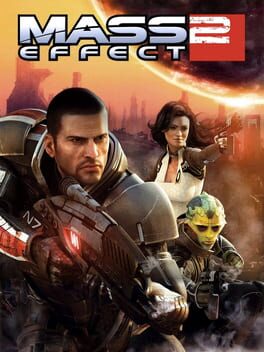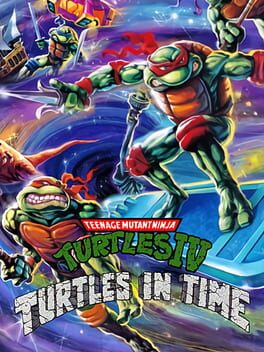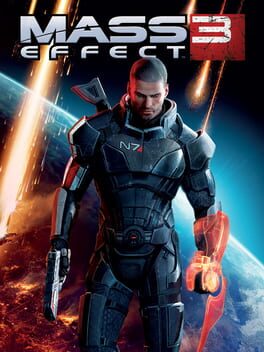ThomVD
27 reviews liked by ThomVD
Little Nightmares II
2021
While I found myself getting ocassionally annoyed with the fixed camera during platforming, chases and combat, Little Nightmares 2 is the perfect Halloween game. It's not obsessed with trying to make you scared, but instead celebrating the time of your life where you were much more easily terrified.
While I was underwhelmed by the Switch resolution and performance of the first game, playing the second on PS5 really helped me appreciate how good this game looks. The visual design is just fantastic, from the cinematic sprawl of the city to the claustrophobic corridors of the school and hospital. The puzzles were never too tough to figure out, but not braindead simple every time.
The game's only real flaw is the combat, which is super delayed and clunky in a game where one hit equals death. Luckily its rare and very checkpoint heavy, but it did have me annoyed multiple times. Same goes for the frequent chase scenes where getting caught on the edge of a door frame means death, which is always anti-climactic since poor depth perception and a camera that sometimes is late to the party make it feel unfair.
Nitpicks aside, it's a high quality, well paced horror game that feels like the logical next step of Limbo and Inside. This game also made me retroactively like the first one more, which is a sign of a good sequel. Also, screw Bandai Namco for making a third one after the creators decided they were done.
While I was underwhelmed by the Switch resolution and performance of the first game, playing the second on PS5 really helped me appreciate how good this game looks. The visual design is just fantastic, from the cinematic sprawl of the city to the claustrophobic corridors of the school and hospital. The puzzles were never too tough to figure out, but not braindead simple every time.
The game's only real flaw is the combat, which is super delayed and clunky in a game where one hit equals death. Luckily its rare and very checkpoint heavy, but it did have me annoyed multiple times. Same goes for the frequent chase scenes where getting caught on the edge of a door frame means death, which is always anti-climactic since poor depth perception and a camera that sometimes is late to the party make it feel unfair.
Nitpicks aside, it's a high quality, well paced horror game that feels like the logical next step of Limbo and Inside. This game also made me retroactively like the first one more, which is a sign of a good sequel. Also, screw Bandai Namco for making a third one after the creators decided they were done.
NieR: Automata
2017
This review contains spoilers
The purpose of a critique is to take something apart to reveal a flawed construction or a shaky foundation, so it’s with some reluctance that I take on a modern classic with only an arm full of rocks to break the windows. I may have personally found this game to be a slog, but its straightforward action doesn’t actually have any fundamental problems. It tells a story with a lot of twists and turns, it develops its characters, there really doesn’t seem to be anything wrong with it. So, here’s the brick I intend to throw at it:
What is Nier: Automata about? Not in terms of plot, what are its themes and core ideas?
This question probably sounds insane. How could you not pick up on its absurdist ideas? How could you not notice how existentialism is core to its central conflict? Well obviously, I did, but the ridiculousness of the question is exactly my point. Nier: Automata leaves so little to the imagination, so little for you to wonder about and consider on your own that it ultimately works against its own interests. Naming someone “2B” in an existential game is a pretty cheeky move, and naming a traitor character “A2” starts to get into eye-rolling territory. When the two protagonists who work for an inscrutable authority wear blindfolds, and the one who left the organization has her eyes open, it's just painfully on the nose. Introducing the machine-fighting heroes as androids themselves, and having them state “There’s no actual meaning behind anything machines do” within the first thirty minutes signposts the direction of the plot so clearly that it kills the intrigue. Examples like these are dotted all over the game, like how the moral absoluteness of Yorha has literally made their base viewable only in black and white, and how most secondary characters are named after philosophers who tangentially relate to the game’s themes. These details don’t draw you in and spark your imagination, but simply highlight how this was written by someone who didn’t want the time they spent reading philosophy to be wasted on people who wouldn’t pick up on messages less subtle than a chainsaw.
This sort of approach affects the gameplay just as much, with the most notable example being how the endings are paced. The first “ending” takes about ten hours to reach, but this is more of an intro than anything. The plot goes on to be resolved in the subsequent endings B through E, with the B ending being the second longest with a run time of six hours. During this time, you play as the sidekick 9S instead of 2B, and essentially replay the entire game with minimal changes other than a repetitive hacking minigame. The purpose was to force players into recognizing all the plot/character details they may have missed the first time around, grinding players’ faces into the story to ensure that they did not miss absolutely anything. Replaying games can be great, and picking up on details you missed is fun, but hiding the resolution to the story behind a boring replay is excessively self-indulgent on the behalf of the developers. This is incredibly damaging to its overall replay value, even when there wasn’t much to begin with, considering how the combat is similarly concerned with ensuring even the least attentive players see everything. The action is very simplistic, and the combination of strong upgrade chips and consumable items only incentivizes players to thoughtlessly break through the game rather than mentally engage with it.
That’s really what all these little nitpicky rocks pile up to become. I may have loved its style, its fashion, its sense of humor, and how it actually tried to do something philosophical, but a game that tries to be about philosophy, yet doesn’t let players think on their own, has an unavoidably detrimental irony. It’s a game that misses its own point, not letting people uncover meaning in a game about uncovering meaning. Even so, the character drama still works. The combat is still fun to watch, and for people who haven’t been exposed to this sort of topic, it wouldn’t feel as patronizing. Most people don’t replay games at all, so even the repetition I found to be so gratuitous could have been an eye-opening experience. Nier: Automata still stands tall in spite of my little complaints, but it’s not exactly a house I want to live in. Some asshole broke all the windows.
What is Nier: Automata about? Not in terms of plot, what are its themes and core ideas?
This question probably sounds insane. How could you not pick up on its absurdist ideas? How could you not notice how existentialism is core to its central conflict? Well obviously, I did, but the ridiculousness of the question is exactly my point. Nier: Automata leaves so little to the imagination, so little for you to wonder about and consider on your own that it ultimately works against its own interests. Naming someone “2B” in an existential game is a pretty cheeky move, and naming a traitor character “A2” starts to get into eye-rolling territory. When the two protagonists who work for an inscrutable authority wear blindfolds, and the one who left the organization has her eyes open, it's just painfully on the nose. Introducing the machine-fighting heroes as androids themselves, and having them state “There’s no actual meaning behind anything machines do” within the first thirty minutes signposts the direction of the plot so clearly that it kills the intrigue. Examples like these are dotted all over the game, like how the moral absoluteness of Yorha has literally made their base viewable only in black and white, and how most secondary characters are named after philosophers who tangentially relate to the game’s themes. These details don’t draw you in and spark your imagination, but simply highlight how this was written by someone who didn’t want the time they spent reading philosophy to be wasted on people who wouldn’t pick up on messages less subtle than a chainsaw.
This sort of approach affects the gameplay just as much, with the most notable example being how the endings are paced. The first “ending” takes about ten hours to reach, but this is more of an intro than anything. The plot goes on to be resolved in the subsequent endings B through E, with the B ending being the second longest with a run time of six hours. During this time, you play as the sidekick 9S instead of 2B, and essentially replay the entire game with minimal changes other than a repetitive hacking minigame. The purpose was to force players into recognizing all the plot/character details they may have missed the first time around, grinding players’ faces into the story to ensure that they did not miss absolutely anything. Replaying games can be great, and picking up on details you missed is fun, but hiding the resolution to the story behind a boring replay is excessively self-indulgent on the behalf of the developers. This is incredibly damaging to its overall replay value, even when there wasn’t much to begin with, considering how the combat is similarly concerned with ensuring even the least attentive players see everything. The action is very simplistic, and the combination of strong upgrade chips and consumable items only incentivizes players to thoughtlessly break through the game rather than mentally engage with it.
That’s really what all these little nitpicky rocks pile up to become. I may have loved its style, its fashion, its sense of humor, and how it actually tried to do something philosophical, but a game that tries to be about philosophy, yet doesn’t let players think on their own, has an unavoidably detrimental irony. It’s a game that misses its own point, not letting people uncover meaning in a game about uncovering meaning. Even so, the character drama still works. The combat is still fun to watch, and for people who haven’t been exposed to this sort of topic, it wouldn’t feel as patronizing. Most people don’t replay games at all, so even the repetition I found to be so gratuitous could have been an eye-opening experience. Nier: Automata still stands tall in spite of my little complaints, but it’s not exactly a house I want to live in. Some asshole broke all the windows.
This review contains spoilers
Don't you just hate it when a game railroads you into doing a certain thing to progress on it and then proceeds to try to make you feel bad as if you ever had any say on the matter? It's basically what Totono does in its attempt at deconstructing romance VNs, and it didn't click with me at all. Maybe it's aimed at people who self-insert into the protagonists of the VNs they play or something, but as someone who sees himself as merely an observer through the protagonist's point of view, I didn't feel bad for "cheating" on Miyuki with Aoi after promising I'll be faithful to her, because as far as I was concerned, the one who promised to be faithful to her was that route's version of Shinichi, and the one who went with Aoi never made any promises to Miyuki.
Even if I were to examine my actions as the player, all I did was just follow the path the game was setting up for me and then experimenting with the choices in the second playthrough. Should I feel guilty about that? And most importantly, should I feel sympathetic towards fucking Miyuki? Sure, I may have "cheated" on her, but she literally murders Shinichi, Aoi and even the cat who had nothing to do with any of this without any sort of remorse. She also attemps to gaslight me throughout the rest of the game, she manipulates and negatively affects the lives of everyone else for her own benefit, she's plainly a selfish cunt. I assumed Miyuki was the villain of the game much like Monika was in DDLC, but unlike Monika, Miyuki never takes responsibility for her actions, all she does is blame other people for the shit she pulls off and feels like the writers actually agree with that reasoning, even the ending was unsatisfying as hell because Aoi who hasn't really done anything wrong suffers the biggest consequence by disappearing from the game and everyone's memories, while it's heavily implied that Miyuki and Shinichi will get a happy ending together eventually.
What made me curious to check Totono out was the fact that VN weebs kept talking about how it's the "good version" of DDLC, some even accusing DDLC of ripping this off and shit. Obviously that made me create high expectations, since I liked the concept of DDLC but felt it could have been more fleshed out, but I felt especially let down in this case because DDLC arguably does the whole meta twist thing better than Totono by being more immersive with the files, the random glitches and that kind of stuff, it also has a better antagonist character that the game actually treats as such. Totono was probably the most disappointing VN I've played in a while, and while I wouldn't say it's necessarily bad, it has a handful of interesting moments and ideas, but they're misused for the most part.
Even if I were to examine my actions as the player, all I did was just follow the path the game was setting up for me and then experimenting with the choices in the second playthrough. Should I feel guilty about that? And most importantly, should I feel sympathetic towards fucking Miyuki? Sure, I may have "cheated" on her, but she literally murders Shinichi, Aoi and even the cat who had nothing to do with any of this without any sort of remorse. She also attemps to gaslight me throughout the rest of the game, she manipulates and negatively affects the lives of everyone else for her own benefit, she's plainly a selfish cunt. I assumed Miyuki was the villain of the game much like Monika was in DDLC, but unlike Monika, Miyuki never takes responsibility for her actions, all she does is blame other people for the shit she pulls off and feels like the writers actually agree with that reasoning, even the ending was unsatisfying as hell because Aoi who hasn't really done anything wrong suffers the biggest consequence by disappearing from the game and everyone's memories, while it's heavily implied that Miyuki and Shinichi will get a happy ending together eventually.
What made me curious to check Totono out was the fact that VN weebs kept talking about how it's the "good version" of DDLC, some even accusing DDLC of ripping this off and shit. Obviously that made me create high expectations, since I liked the concept of DDLC but felt it could have been more fleshed out, but I felt especially let down in this case because DDLC arguably does the whole meta twist thing better than Totono by being more immersive with the files, the random glitches and that kind of stuff, it also has a better antagonist character that the game actually treats as such. Totono was probably the most disappointing VN I've played in a while, and while I wouldn't say it's necessarily bad, it has a handful of interesting moments and ideas, but they're misused for the most part.
Pikmin 2
2004
Fuck you Nintendo for releasing Pikmin 1+2 while I was in the middle of playing this emulated.
I imagine the biggest internal conversation regarding sequel development is in regards to changes. A sequel is always the best way to really assess what makes an original title work and what doesn't. Pikmin 1 had the benefit of being such a richly produced game I found it hard to imagine what could be done to improve on it while playing it for the first time a while ago.
Weird feeling to find out that Nintendo's answer, in 2004, seemed to be "not much."
Pikmin 2 really wanted to flip the core of Pikmin on its head, by going from a time-limited scramble for ship parts to a slower, methodical treasure hunt. Part of Pikmin's appeal, to me, will always be its ability to pressure the player. Controversial as it was, Pikmin's entire campaign was time-limited for 30 in-game days, each day about 13 minutes in length. So, in short, each Pikmin playthrough will last, at most, about six and a half hours, give or take. To stress it out, the player is put under two constant time limits, that for the day, and that for the 30 total days. On my first playthrough I missed the deadline at the last minute by having the last two crucial parts in separate areas on the last day. It was frustrating, but I still enjoyed Pikmin.
I was aware of how Pikmin 2 removed the 30-day time limit but I also wasn't aware of what else it did to flip up the core game loop.
i.e. fucking dungeons. A lot of this review is gonna be about the caves/dungeons, as they’re the new center of the gameplay in this sequel.
Pikmin 2 decides that, while time ticks away during the day above ground, four different entrances in each area can be found that lead to a unique underground cave. The now-overworld clock freezes as you're now dungeon crawling for the bulk of the game time. Within the first hour, the main essence of Pikmin's design philosophy is contradicted. Pikmin 1's yin-yang of problem solving and time management is disregarded as Pikmin 2 concerns itself more with scanning featureless floors of repeating geometry, relegating the Pikmin to color-coded keys instead of diverse pieces of a toolkit. Red Pikmin are immune to fire and can remove fire traps, Yellow Pikmin are immune to electricity and can remove electric traps, Blue Pikmin can swim and are mostly useless in caves. Every floor, no matter the layout or cave itself, plays out exactly the same: clear out the enemies and traps, bring the treasures back to the landing spot, proceed down. You do this shit for over 100 floors, and all they do is get bigger, more plentiful, and take longer to complete as the game progresses.
Call me jaded or reluctant to change, but I don't find the constant lock-and-key (as Pangburn beautifully put it) gameloop an effective progression from what I previously experienced as such a greatly imaginative strategic puzzle blend.
I think what can be said most about the dungeons is how pointless they are for something that takes center stage. As I stated, pausing the daily time limit for extended dungeon crawling segments completely eviscerates the need for the time limit at all, especially with how barren the above ground sections are now. What used to be the main environment of Pikmin 1, sprawling multi-pathed worlds and labyrinths with puzzles to solve and routes to optimize at every corner have turned into circularly linear gates to these cave entrances with not much to see or do when outside of them. There's some stray treasure out there, but with how little time you spend above ground the time limit may as well not be there. I repaid my debt in 25 days over 10 hours of playtime, twice the time I spent in 30 days within Pikmin 1.
I could write much more, about this game's psychopathic sense of difficulty in the late game, over-reliance on randomized hazards to artificiate difficulty (those fucking bombs that drop from the cave ceilings), the unsubtle requirement to reset the game every time you fuck up on a shitty floor layout to get a new one (as it asks you to save between floors as a loud and obnoxious wink), the timepadding of having to farm the new White and Purple Pikmin, etcetera etcetera. You think all those clips being posted on Twitter of everyone's Pikmin army being completely eviscerated by random hazards all being from Pikmin 2 specifically is just a coincidence? It sure as hell isn't. Sometimes I think Pikmin 2 is a work of pure evil.
Despite all its changes, with all of Pikmin 2's misguided and unthoughtful reimagining, the most subversive thing of all is that I don't flat out hate it. It can be trudging, monotonous, boring, but never completely joyless. It's still a wonder of world and sound design, and there are moments above ground that spark the same light as its predecessor. I think "misguided" really is the key descriptor for Pikmin 2, as the core of a good game is still there and felt. Though I audibly groaned at the return of caves in Pikmin 4, with an explosion of countless indie roguelikes in recent years a-la Enter the Gungeon and Spelunky with their innovative dungeon crawling systems in the name of accessibility and quality of life, I think there's no drought in inspiration Nintendo could take from. Pikmin 2 could be elevated as a footnote in Pikmin 4's potentially successful winning take on Pikmin-meets-dungeon-crawling, but for now, it's a clumsy effort to shake up a successful formula that didn't need to be changed.
I imagine the biggest internal conversation regarding sequel development is in regards to changes. A sequel is always the best way to really assess what makes an original title work and what doesn't. Pikmin 1 had the benefit of being such a richly produced game I found it hard to imagine what could be done to improve on it while playing it for the first time a while ago.
Weird feeling to find out that Nintendo's answer, in 2004, seemed to be "not much."
Pikmin 2 really wanted to flip the core of Pikmin on its head, by going from a time-limited scramble for ship parts to a slower, methodical treasure hunt. Part of Pikmin's appeal, to me, will always be its ability to pressure the player. Controversial as it was, Pikmin's entire campaign was time-limited for 30 in-game days, each day about 13 minutes in length. So, in short, each Pikmin playthrough will last, at most, about six and a half hours, give or take. To stress it out, the player is put under two constant time limits, that for the day, and that for the 30 total days. On my first playthrough I missed the deadline at the last minute by having the last two crucial parts in separate areas on the last day. It was frustrating, but I still enjoyed Pikmin.
I was aware of how Pikmin 2 removed the 30-day time limit but I also wasn't aware of what else it did to flip up the core game loop.
i.e. fucking dungeons. A lot of this review is gonna be about the caves/dungeons, as they’re the new center of the gameplay in this sequel.
Pikmin 2 decides that, while time ticks away during the day above ground, four different entrances in each area can be found that lead to a unique underground cave. The now-overworld clock freezes as you're now dungeon crawling for the bulk of the game time. Within the first hour, the main essence of Pikmin's design philosophy is contradicted. Pikmin 1's yin-yang of problem solving and time management is disregarded as Pikmin 2 concerns itself more with scanning featureless floors of repeating geometry, relegating the Pikmin to color-coded keys instead of diverse pieces of a toolkit. Red Pikmin are immune to fire and can remove fire traps, Yellow Pikmin are immune to electricity and can remove electric traps, Blue Pikmin can swim and are mostly useless in caves. Every floor, no matter the layout or cave itself, plays out exactly the same: clear out the enemies and traps, bring the treasures back to the landing spot, proceed down. You do this shit for over 100 floors, and all they do is get bigger, more plentiful, and take longer to complete as the game progresses.
Call me jaded or reluctant to change, but I don't find the constant lock-and-key (as Pangburn beautifully put it) gameloop an effective progression from what I previously experienced as such a greatly imaginative strategic puzzle blend.
I think what can be said most about the dungeons is how pointless they are for something that takes center stage. As I stated, pausing the daily time limit for extended dungeon crawling segments completely eviscerates the need for the time limit at all, especially with how barren the above ground sections are now. What used to be the main environment of Pikmin 1, sprawling multi-pathed worlds and labyrinths with puzzles to solve and routes to optimize at every corner have turned into circularly linear gates to these cave entrances with not much to see or do when outside of them. There's some stray treasure out there, but with how little time you spend above ground the time limit may as well not be there. I repaid my debt in 25 days over 10 hours of playtime, twice the time I spent in 30 days within Pikmin 1.
I could write much more, about this game's psychopathic sense of difficulty in the late game, over-reliance on randomized hazards to artificiate difficulty (those fucking bombs that drop from the cave ceilings), the unsubtle requirement to reset the game every time you fuck up on a shitty floor layout to get a new one (as it asks you to save between floors as a loud and obnoxious wink), the timepadding of having to farm the new White and Purple Pikmin, etcetera etcetera. You think all those clips being posted on Twitter of everyone's Pikmin army being completely eviscerated by random hazards all being from Pikmin 2 specifically is just a coincidence? It sure as hell isn't. Sometimes I think Pikmin 2 is a work of pure evil.
Despite all its changes, with all of Pikmin 2's misguided and unthoughtful reimagining, the most subversive thing of all is that I don't flat out hate it. It can be trudging, monotonous, boring, but never completely joyless. It's still a wonder of world and sound design, and there are moments above ground that spark the same light as its predecessor. I think "misguided" really is the key descriptor for Pikmin 2, as the core of a good game is still there and felt. Though I audibly groaned at the return of caves in Pikmin 4, with an explosion of countless indie roguelikes in recent years a-la Enter the Gungeon and Spelunky with their innovative dungeon crawling systems in the name of accessibility and quality of life, I think there's no drought in inspiration Nintendo could take from. Pikmin 2 could be elevated as a footnote in Pikmin 4's potentially successful winning take on Pikmin-meets-dungeon-crawling, but for now, it's a clumsy effort to shake up a successful formula that didn't need to be changed.
